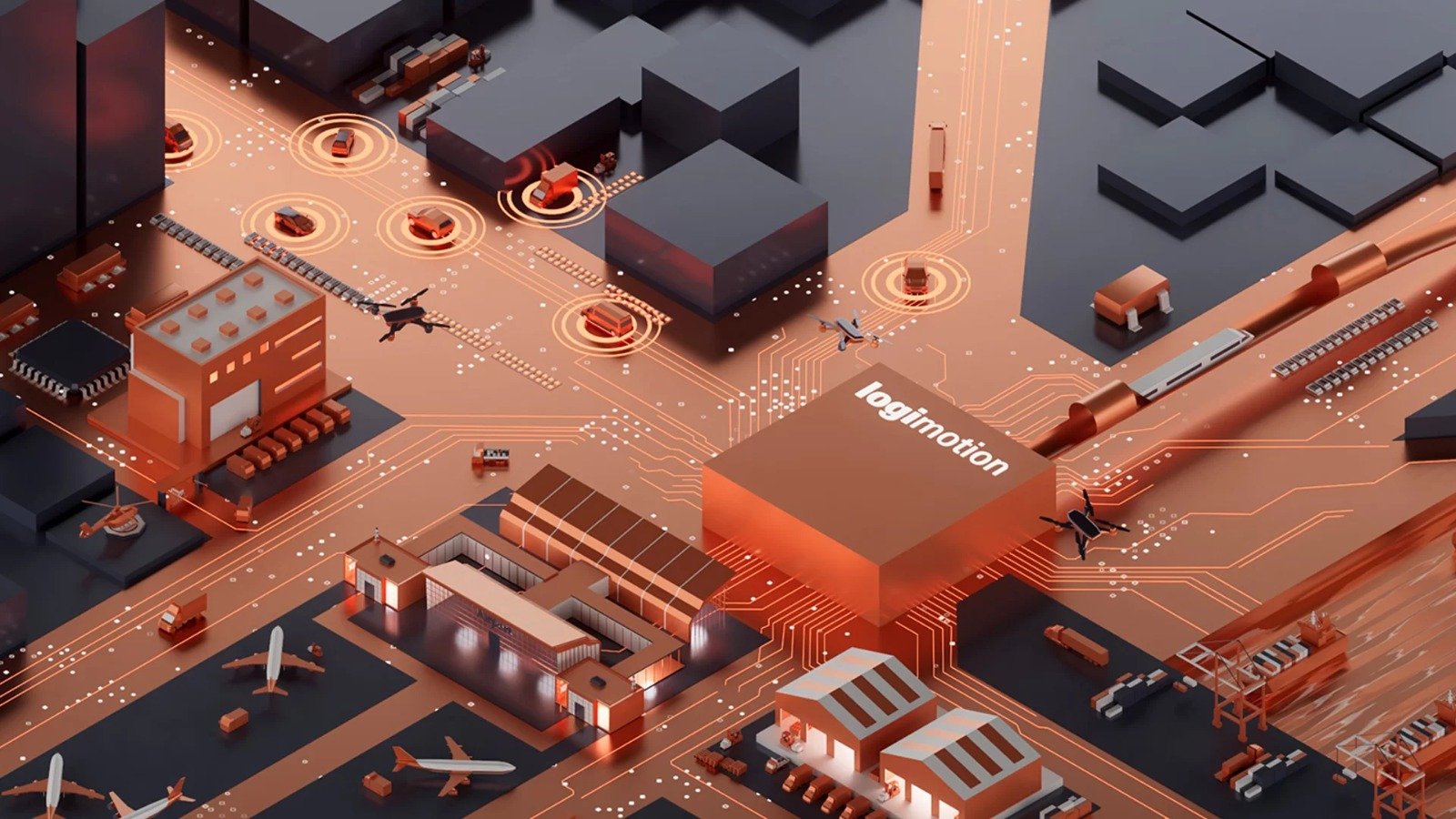Why Efficiency in Oil and Gas Logistics Matters More Than Ever
Efficiency in oil and gas logistics has become a critical factor as the global energy landscape evolves. With the rising demand for natural gas and crude oil, logistics operations must adapt to ensure timely, cost-effective, and sustainable solutions. Logimotion 2024 aims to shed light on these advancements and innovations in logistics, enabling companies to streamline operations and remain competitive in a challenging environment.
This blog will explore why efficiency is more important than ever in oil and gas logistics, and how companies can optimize their processes to achieve success.
1. The Impact of Rising Demand for Oil and Gas

The global demand for oil and gas products continues to rise, driven by population growth, industrialization, and technological advancements. As demand increases, so does the need for efficient logistics operations to ensure a consistent supply of energy resources.
Challenges:
- Increased Pressure on Supply Chains: As demand grows, logistics networks are put under more strain, requiring companies to optimize every stage of the gas supply chain.
- Longer Transit Routes: To meet demand, companies may need to source oil and gas from more distant locations, increasing the complexity and cost of logistics.
How to Overcome It:
- Leverage Technology: Companies can use IoT and AI technologies to optimize routes, monitor shipments, and predict demand more accurately, improving overall efficiency.
- Diversify Supply Chains: Sourcing from multiple locations can help reduce pressure on logistics operations and mitigate risks associated with supply chain disruptions.
Learn more about these strategies at Logimotion 2024.
2. Managing Costs in Oil and Gas Logistics
Cost management is a primary concern for companies operating in the oil and gas industry. Logistics operations can be expensive, particularly when considering fuel costs, labor, and infrastructure. By improving efficiency, companies can reduce costs and maintain profitability.
Key Cost Drivers:
- Fuel Costs: Rising fuel prices can significantly impact the cost of transporting crude oil and natural gas.
- Labor Costs: The need for skilled labor to manage logistics operations adds to the overall cost.
- Maintenance Costs: Equipment used in oil and gas logistics, such as pipelines and trucks, requires regular maintenance, contributing to operational expenses.
How to Overcome It:
- Automate Processes: By automating tasks such as route planning, inventory management, and vehicle maintenance scheduling, companies can reduce labor costs and minimize errors.
- Optimize Routes: Using AI-powered route optimization tools, companies can reduce fuel consumption by selecting the most efficient routes.

3. The Role of Sustainability in Oil and Gas Logistics
Sustainability is no longer just a buzzword—it’s an essential consideration for companies in the oil and gas industry. Consumers, governments, and stakeholders are demanding greener practices, and logistics operations are a key area where sustainability improvements can be made.
Challenges:
- Environmental Impact: The transportation of oil and gas products is a major contributor to carbon emissions, and companies must reduce their environmental footprint.
- Regulatory Pressure: Governments are implementing stricter regulations on emissions, requiring companies to adopt sustainable logistics practices.
How to Overcome It:
- Adopt Greener Transportation Solutions: Companies can use electric and hybrid vehicles, optimize fuel consumption, and implement eco-friendly packaging to reduce emissions.
- Monitor Sustainability Metrics: IoT devices can track emissions in real-time, providing insights into areas where companies can reduce their environmental impact.
4. Supply Chain Visibility and Transparency
In oil and gas logistics, visibility and transparency across the supply chain are crucial for ensuring that operations run smoothly. Companies need to know where their products are at all times, and they need to have the ability to predict and mitigate potential disruptions.

Challenges:
- Lack of Real-Time Data: Many logistics operations still rely on outdated systems that don’t provide real-time insights into the location and status of shipments.
- Inefficient Communication: A lack of communication between stakeholders in the supply chain can lead to delays, errors, and increased costs.
How to Overcome It:
- Implement IoT Solutions: IoT sensors can provide real-time data on shipment status, helping logistics managers track products and optimize their operations.
- Use Blockchain for Transparency: Blockchain technology allows companies to securely and transparently share data across the supply chain, improving communication and accountability.
5. Risk Management in Oil and Gas Logistics
The oil and gas logistics sector faces numerous risks, including geopolitical instability, fluctuating prices, and natural disasters. Efficient logistics operations require robust risk management strategies to prevent disruptions and maintain a consistent supply of oil and gas products.
Key Risks:
- Geopolitical Instability: Conflicts in key oil-producing regions can disrupt logistics networks, causing delays and price fluctuations.
- Price Volatility: The price of crude oil and natural gas can fluctuate dramatically, impacting logistics costs and profitability.
How to Overcome It:
- Diversify Supply Sources: Companies can reduce risk by sourcing oil and gas from multiple regions, minimizing the impact of geopolitical disruptions.
- Leverage Predictive Analytics: AI and data analytics can help companies predict market trends and adjust their logistics strategies accordingly.
6. The Role of Digitalization in Improving Efficiency
Digitalization is transforming oil and gas logistics by providing companies with the tools they need to optimize operations, reduce costs, and improve efficiency. Technologies such as AI, IoT, and blockchain are giving companies unprecedented insight into their logistics networks, enabling smarter decision-making.
Benefits of Digitalization:
- Increased Efficiency: Automated systems and real-time data allow companies to streamline logistics operations, improving speed and reducing costs.
- Improved Safety: Digital tools can monitor equipment and shipments in real-time, identifying potential safety issues before they become critical.
Benefits of Attending Logimotion 2024
Attending Logimotion 2024 provides logistics professionals with the opportunity to explore the latest trends and technologies driving efficiency in oil and gas logistics. Benefits include:
- Expert Insights: Hear from industry leaders about the latest advancements in logistics optimization.
- Technology Demos: Explore cutting-edge technologies, including AI, IoT, and blockchain, that are transforming the logistics landscape.
- Networking Opportunities: Connect with other professionals in the oil and gas industry to share ideas and build valuable relationships.
Book Your Seat Now! to stay ahead in the rapidly evolving world of logistics.
FAQs About Logimotion 2024
1. Who should attend Logimotion 2024?
Logimotion 2024 is designed for logistics professionals, supply chain managers, and technology providers in the oil and gas industry looking to optimize their operations.
2. What will be covered at the event?
The event will cover key topics such as automation, digitalization, AI, sustainability, and risk management in oil and gas logistics.
3. When and where is Logimotion 2024?
The event will be held at Zaábeel Hall 6, Dubai World Trade Centre, on 10 – 11 December 2024.
Conclusion
Efficiency in oil and gas logistics is more important than ever as the industry faces growing demand, cost pressures, and sustainability challenges. By leveraging technology, optimizing supply chains, and adopting greener practices, companies can improve their logistics operations and ensure long-term success. Logimotion 2024 is the perfect platform to explore these innovations and learn how to implement them effectively in your business.






